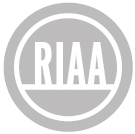 Recording Industry Association of America has crafted a proposal to American regulator, Federal Communications Commission, that would add DRM functionality to the digital radio platform used in the United States. Organization plans to submit the proposal to FCC next week.
Recording Industry Association of America has crafted a proposal to American regulator, Federal Communications Commission, that would add DRM functionality to the digital radio platform used in the United States. Organization plans to submit the proposal to FCC next week.
RIAA proposes restrictions to upcoming digital radio recorders that would make it possible for listeners to record digital broadcasts, but would not allow dividing the broadcasts into individual songs. RIAA also wants to add a "copyright flag" to the equation, making it possible for content owners to set up a flag that would tell the recording devices that the broadcast can't be recorded at all, not even in full form.
Over 300 American terrestial radio stations already do digital broadcasting, typically in addition to their analog broadcasting. RIAA's proposals wouldn't affect to the two satellite radio operators, XM and Sirius, as -- according to the RIAA -- they "...have an incentive to limit it [digital recording] ...".
Source: Wired













